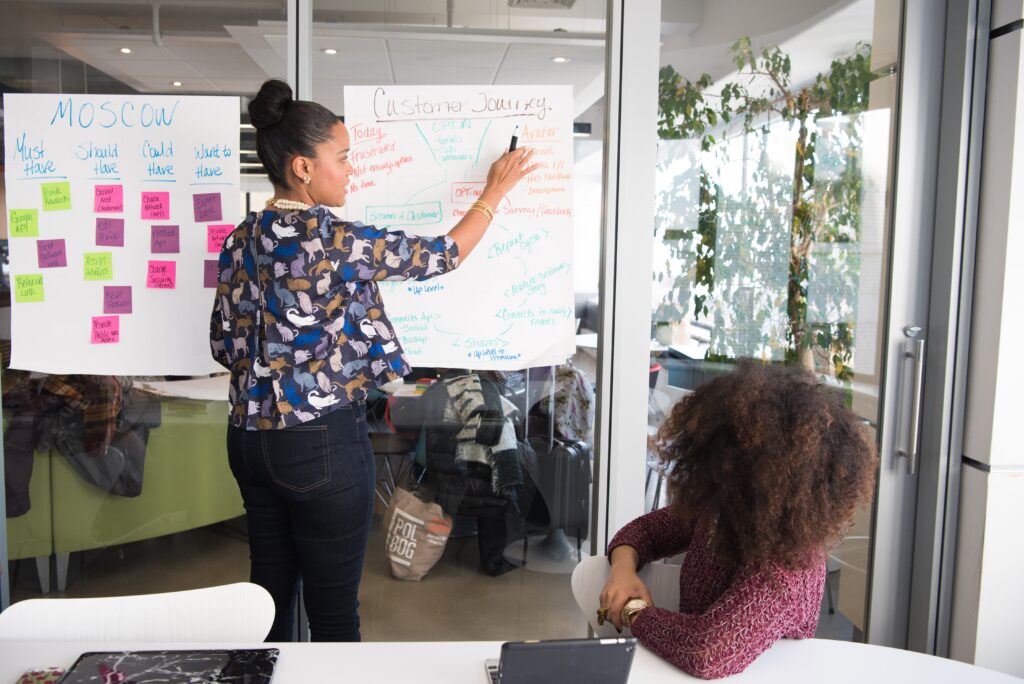You know this already, but I’ll say it anyway-
Effective communication among employees and managers is vital to your organization’s success. If people aren’t communicating well, they aren’t producing quality work.
Yet, so many organizations don’t offer communication skills training.
Communication Skills Training
So here are five reasons you should start your year off with employee and manager communication skills training.
Effective communication creates positive relationships and thus employee engagement.
Read any article or book on employee engagement and it’ll tell you positive relationships are a hefty part of the engagement equation. Without effective communication, you can’t have positive relationships, and so employee engagement can’t exist. Ineffective communication creates anger and frustration, which most certainly thwarts any engagement initiatives you might be working on.
Effective communication facilitates innovation.
Psychologist Barbara Fredrickson’s highly regarded research found that when we experience positive emotions, our mind literally opens up and becomes more aware, flexible, and explorative. The positive emotions give us courage to act on those explorations, and we then build skills over time. Fredrickson calls this “broaden and build.” Negative emotions, however, narrow our thinking as we get focused on immediate solutions in the moment.
Think about this…
One of your client representatives has a positive, effective interaction with a co-worker, and then answers the phone immediately after (likely with a positive tone). The client on the other end has a problem, and due to the positive emotions your rep feels, he is innovative in his troubleshooting and solves the problem. He has added to his repertoire of problem solving and customer service, and is able to broaden and build his skills.
Now think about a rep who has a negative interaction with a co-worker, and then answers the phone immediately after (probably not with the best tone of voice). The client has a problem in need of a solution, but with his mind narrowed, he isn’t able to solve the problem as well as our first rep, and customer service has suffered. All he’s learned is not to interact with the rude co-worker.
Effective communication facilitates learning.
In line with Fredrickson’s work, when people experience positive interactions their minds are open and able to learn new things. In order to learn, employees must feel safe to disagree, ask questions, and make mistakes; they must value competing ideas and feel encouraged to take risks. This can all happen with effective communication. Check out this HBR gem for more insight.
Effective communication promotes effective teamwork.
When information flows easily between teammates, it increases the ability to interact and provide each other the right information to make good decisions and ultimately produce better work. Effective communication also reduces the chance for conflict, and inspires collaborative conflict resolution.
Effective communication decreases absenteeism and presenteeism.
There is so much research that negative relationships cause people to get distracted and call in sick, it’s not even funny. For example, one study found that people who feel bullied take an average of 10 more sick days per year than those who don’t feel bullied (Agervold & Mikkelsen, 2004). Another study found that when employees are on the receiving end of an uncivil encounter they intentionally reduce their commitments to the organization as a result of being the target of uncivil behavior, and they waste time thinking about the incident as well as avoiding the instigator (Pearson, Anderssen & Porath; 2000).
What about accountability for implementing what was learned?
If you wrangle some budget for a training, you want it to have some lasting effects.
There are several steps needed to ensure accountability, but one important step is to get your managers involved in holding their employees accountable, and get your senior leaders involved in holding their managers accountable.
Before the training, all managers and senior leaders should review the learning objectives, and begin conversing with their employees about them. After the training, leaders should meet with managers and managers with employees, to discuss what was learned, what and how it will be implemented, and measurements of success.
Other ideas for accountability include adding effective communication to the performance management process, or training managers to coach employees who do not engage in effective communication.
All my training programs include a personal action plan, where all attendees are required to complete their plans for personal improvement. My manager training provides guidance on how to set expectations, and how to coach employees.
Check out my communication skills training program. If you’re interested in kicking the year off right, let’s talk!
Sincerely,
Catherine



